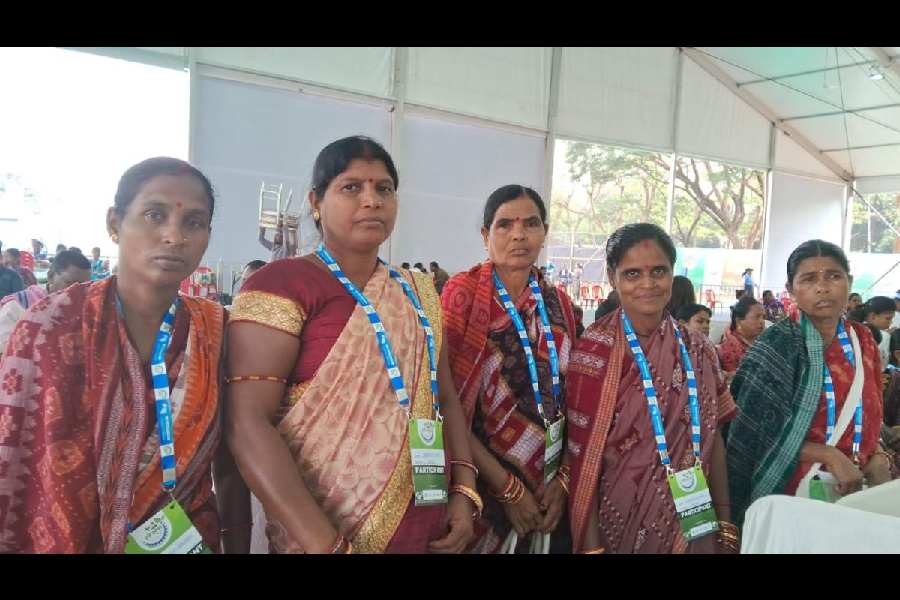Odisha Women Farmers Critique Free Rice Scheme’s Agricultural Impact

Women agriculturists in Odisha are expressing concerns about the adverse impact of the free rice scheme on agricultural activities. As the state and the Centre engage in a competition to claim credit for the scheme, women farmers argue that it has led to reduced profits and a shortage of labor.
Participating in the three-day Krushi-Odisha (Agri-Conclave), over 5,000 farm women and 2,000 women self-help groups gathered in the state capital to discuss the challenges they face. The free rice scheme, providing 5kg of rice per beneficiary per month, has become a focal point in this discussion.
Nayana Mahakud from Belapada village in Boudh district highlighted how the scheme, while ensuring a meal, has made people complacent, diminishing their motivation to work and aspire for more. This, in turn, has resulted in a scarcity of labor in the agricultural sector, as young individuals prefer migrating to industrial areas for better opportunities rather than engaging in farming.
Expressing concern for the future, Nayana stated that she would not encourage her son to pursue agriculture, emphasizing the allure of stable monthly income in other sectors. Kumudini Samal from Mahalipada panchayat echoed these sentiments, pointing out the reliance on expensive machinery like tractors due to labor shortages. The costs associated with cultivation, including labor, manure, and machinery, often outweigh the profits, leaving farmers with meager returns.
Kumudini emphasized the vulnerability of Odisha to natural calamities, raising fears of crop losses despite their best efforts. Another farmer, Tapaswaini Dehuri, advocated for an increase in the Minimum Support Price (MSP) for paddy to ensure more substantial profits. Currently selling paddy at Rs 2,180 per quintal, farmers believe that an MSP of Rs 2,930 would alleviate financial struggles.
In conclusion, women agriculturists in Odisha are grappling with the multifaceted challenges posed by the free rice scheme, including reduced profits, labor shortages, and the need for policy adjustments to support sustainable agriculture.
Repurposed article originally published in the telegraph online









